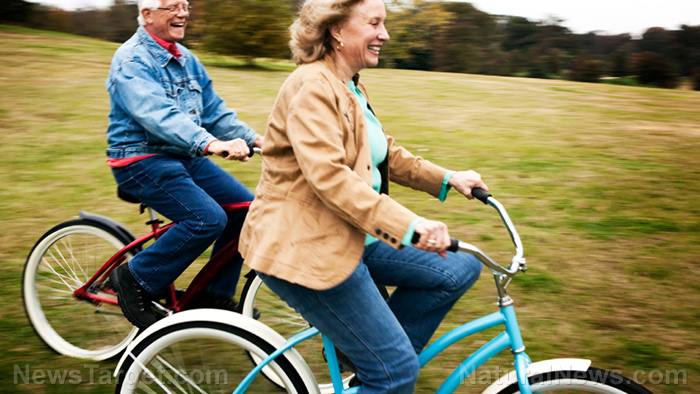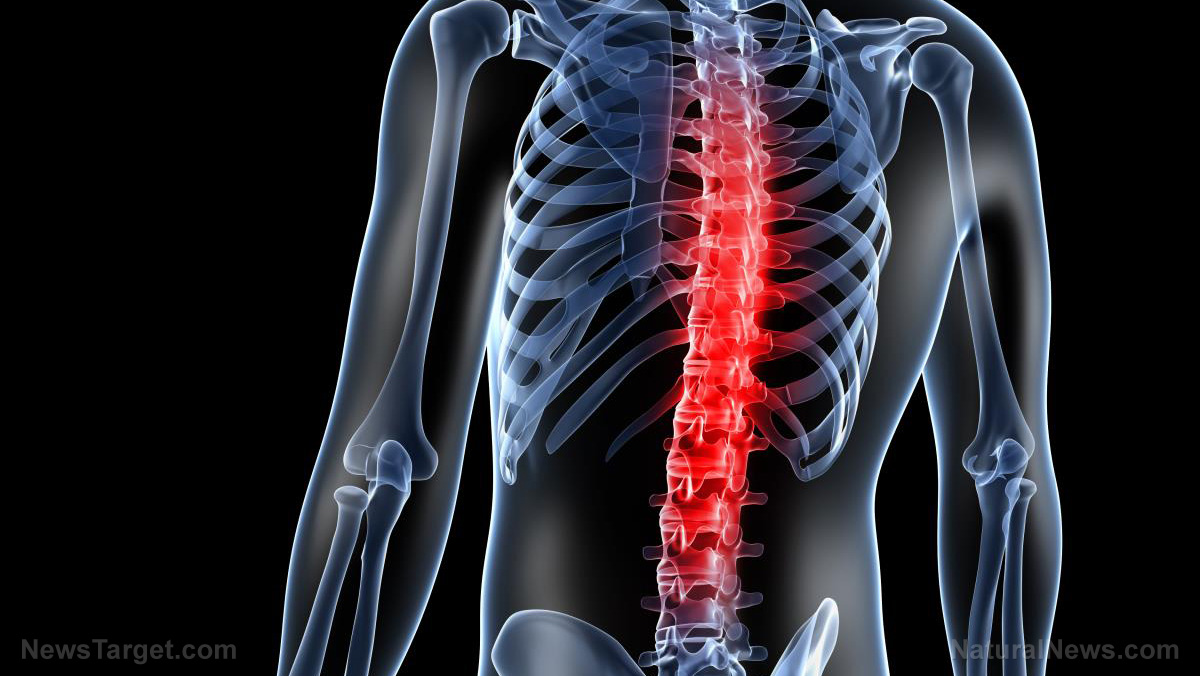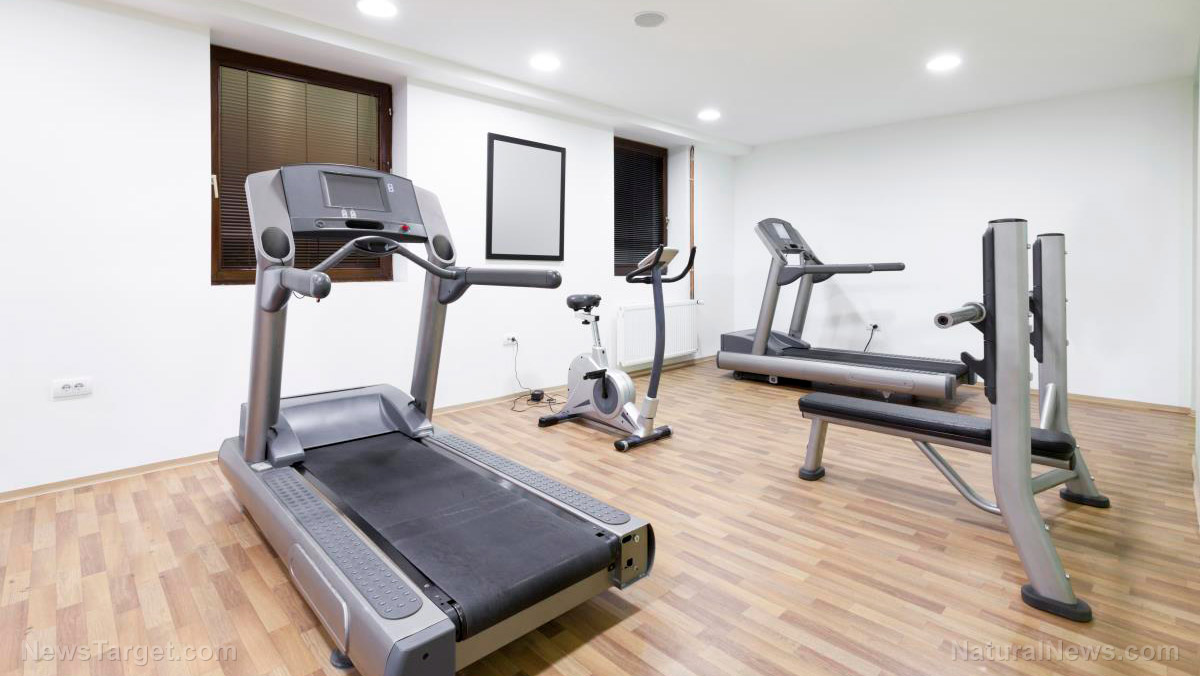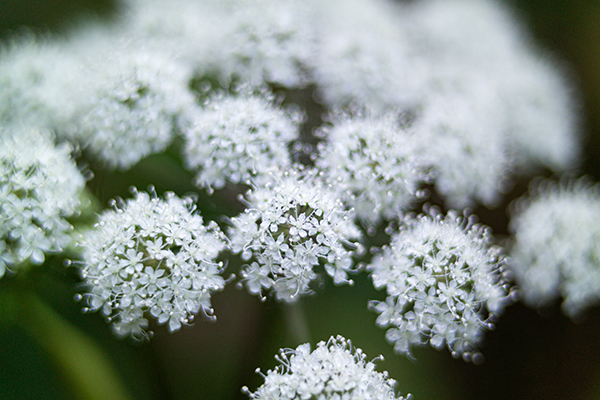Study: Aerobic exercise is key to lowering the risk of dementia among the elderly
09/09/2020 / By Divina Ramirez

Regular exercise among older adults is critical to good health. It keeps aging bodies from becoming stiff and susceptible to chronic conditions, such as heart disease, diabetes and arthritis. But scientists find that maintaining optimum fitness in old age might also protect against another age-related problem: brain decline.
In a major breakthrough, Rong Zhang, an expert in brain aging and a professor of internal medicine at the University of Texas Southwestern (UTSW) Medical Center, and his colleagues found that regular aerobic exercise training can stall brain deterioration and reduce plaques in the brain linked to Alzheimer’s disease.
This is the first randomized controlled trial (RCT) to examine the effect of aerobic exercise training on brain structure, brain function and brain plaque in sedentary older adults that had memory problems. The research findings appeared online in the Journal of Alzheimer’s Disease.
Aerobic exercise has protective effects against dementia
In this most recent RCT, Zhang and his colleagues subjected 70 mild cognitive impairment (MCI) patients aged 55 and older to 12 months of either aerobic exercise training or stretching or toning exercises. The group also measured their cognitive abilities prior to and after the trial.
Using brain imaging techniques, the researchers found that aerobic exercise delayed the shrinkage of the hippocampus, the region of the brain responsible for short- and long-term memory, better than stretching. In dementia patients, the size of the hippocampus can be used to diagnose the progression of the disease.
Furthermore, the researchers found that both groups exhibited no significant improvements in their cognitive abilities after the 12-month trial. However, brain imaging showed that participants in the aerobic exercise group who had more amyloid plaques in their brains experienced less volume reduction in their hippocampus.
Amyloid plaques are aggregates of proteins that form in the spaces between nerve cells, thus impairing the connections between cells. The plaques are often found in the brains of patients with Alzheimer’s disease, the most common form of dementia and as such, are thought to have a major role in its onset and progression.
The idea that exercise can stall cognitive decline is not a breakthrough in itself, as there are past studies that featured similar trials on older adults. But what Zhang and his colleagues found in their RCT is that aerobic exercise, not stretching, has the most significant effect on hippocampus deterioration given the presence of plaque in the brain.
Based on these findings, Zhang speculated that aerobic exercise training might have been able to confer those beneficial effects on the brain because of its impact on cardiovascular health.
Proper blood circulation can encourage neuron growth and survival, said Zhang. This, in turn, might help reduce the damaging effects of plaque in the brain, he added. (Related: Pilates exercise found to improve motor control in middle-aged women.)
Poor fitness corresponds to higher dementia risk
In 2018, another team of researchers from UTSW’s O’Donnell Brain Institute found a link between fitness and brain health. Kan Ding, a neurologist and the lead researcher, and her colleagues studied the brains of older patients that had MCI.
Brain imaging showed that lower fitness levels corresponded to weaker white matter. In turn, this correlated with lower brain function. White matter is brain tissue comprised of millions of bundles of nerve fibers. Neurons use white matter to communicate and send messages across the brain.
Ding and her team had built their research upon past studies linking fitness to brain health, such as a 2013 investigation that Zhang had led. In that trial, Zhang and his colleagues found that athletes who have engaged in life-long aerobic exercise training had strong white matter.
This could mean better motor control and coordination in later life, the researchers concluded.
Learn more about dementia prevention at Dementia.news.
Sources include:
Submit a correction >>
Tagged Under:
aerobic exercise, aging secrets, alternative medicine, Alzheimer's disease, anti-aging, brain function, brain health, dementia, fitness, natural medicine, nervous system, prevention, research
This article may contain statements that reflect the opinion of the author
RECENT NEWS & ARTICLES
AntiAgingScience.News is a fact-based public education website published by Anti Aging Science News Features, LLC.
All content copyright © 2018 by Anti Aging Science News Features, LLC.
Contact Us with Tips or Corrections
All trademarks, registered trademarks and servicemarks mentioned on this site are the property of their respective owners.





















